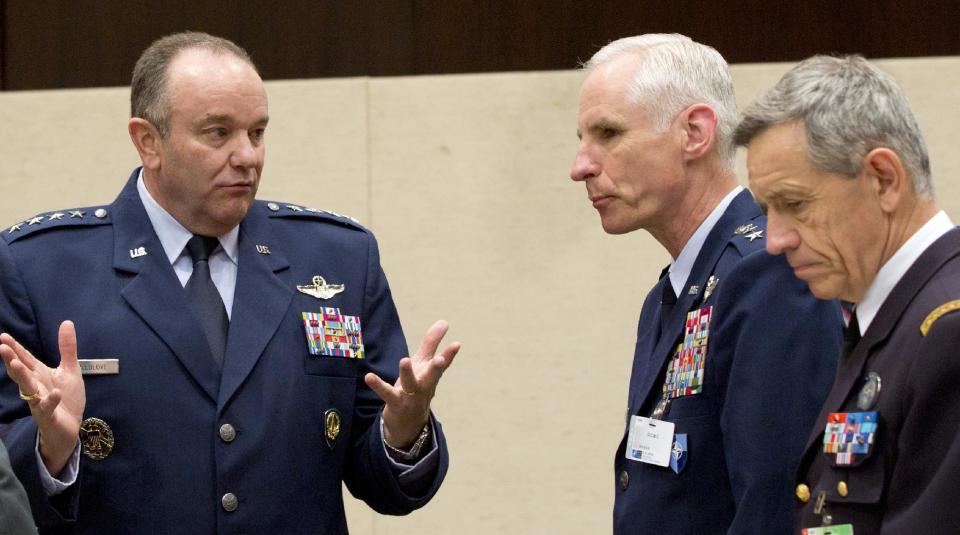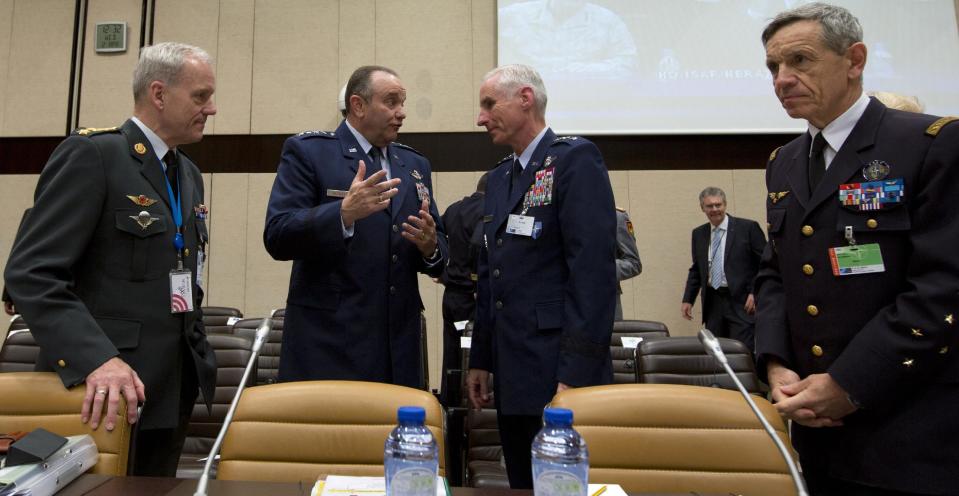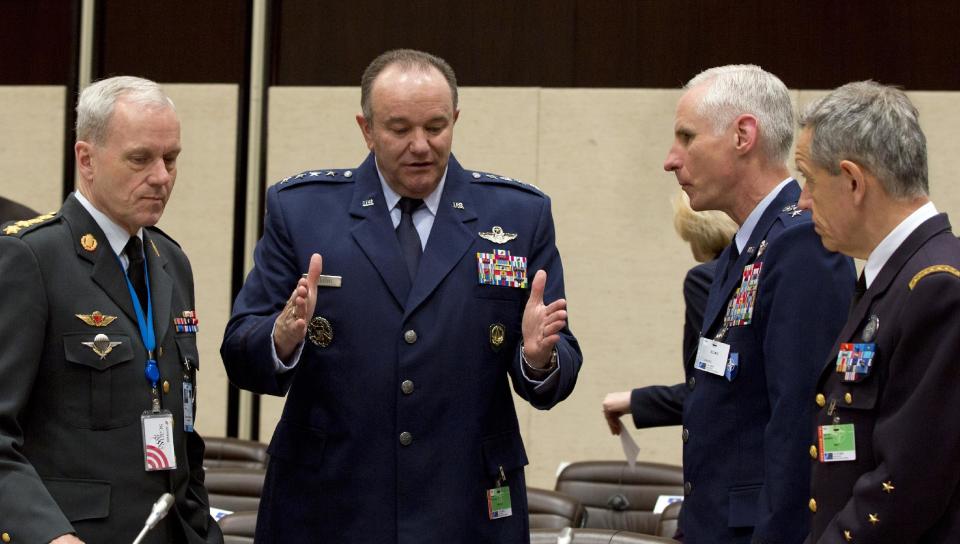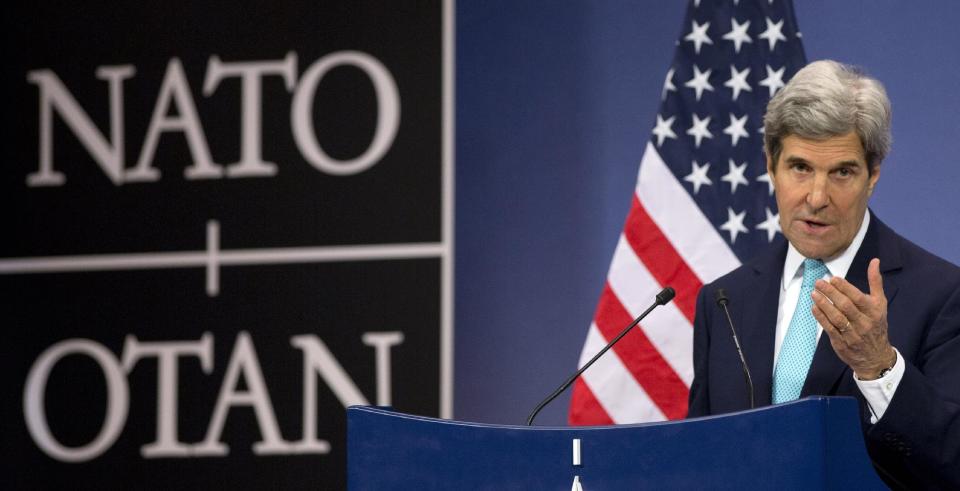Ukrainian officers join NATO drills in Bulgaria
NOVO SELO, Bulgaria (AP) — Lt. Col. Valeria Parada had a challenge.
She and her team were responsible for rescuing people caught up in a dangerous situation around the Black Sea and making sure they received whatever humanitarian assistance they needed.
To do that, she first had to learn how to coordinate among the air, navy and army forces available to help — and then map out the best way to achieve their goal.
Parada was one of 16 senior officers that Ukraine dispatched to Bulgaria to join a NATO military exercise Thursday — a very public demonstration of cooperation between the alliance and the crisis-torn former Soviet republic.
Organizers said the drills, dubbed "Saber Guardian," involved over 700 troops from 13 NATO member and partner nations, as well as representatives from NATO. They were held at Bulgaria's Novo Selo training area, 320 kilometers (200 miles) east of Sofia, the capital, and 70 kilometers (44 miles) from the Black Sea.
It's one of four Bulgarian military facilities involved in a U.S. deal signed in 2006 that allows U.S. troops to be deployed there on rotational training tours.
Thursday's drill was virtual — involving troops working on computer simulations. Although planned in 2013, the exercises coincided with an East-West standoff over Russia's annexation of Crimea from Ukraine. The exercises are being held just few hundred miles away from the contested Black Sea peninsula.
"Our peaceful, humanitarian-focused exercise will help bring stability to this geopolitically significant part of the world," Maj. Gen. Richard Longo, deputy commander of the U.S. Army in Europe, told The Associated Press.
"We are very glad that Ukrainian partners could be here and take part, and they have done a very good job as members of our team," Longo added.
Thursday's exercise aimed to test the capabilities of NATO partner nations in assisting one another, as requested, in disasters or potential worldwide emergencies. Reporters were not allowed to question officers like Parada who were busy working on it.
The command center of the highly complex exercise was a huge tent where dozens of officers worked on real-time solutions for the "regional crisis." Under their command were air, navy, marine and army units and their moves were coordinated with similar centers in the capital cities of Bulgaria and Romania, as well as with the U.S. military base in Ramstein, Germany.
At the end of the two weeks of drills "we will have learned to work for a common goal — to stand shoulder to shoulder no matter what kind of crisis we face," Longo said.
And the NATO-led teams are planning to get even more practice.
"When we do the exercise in the Ukraine next year, it will be even bigger and more complex," Longo said.





